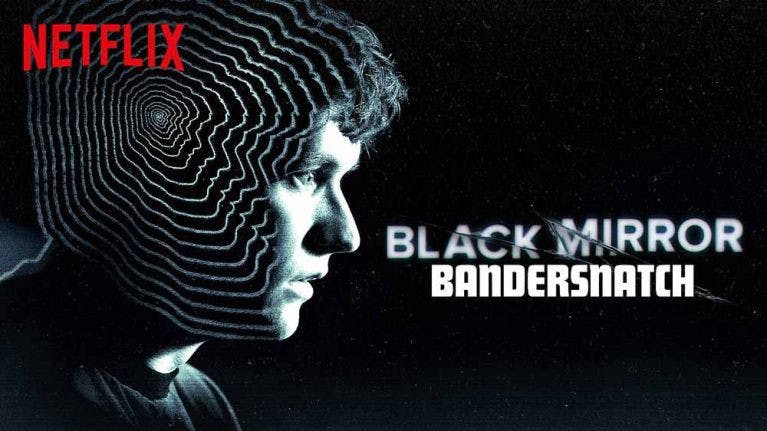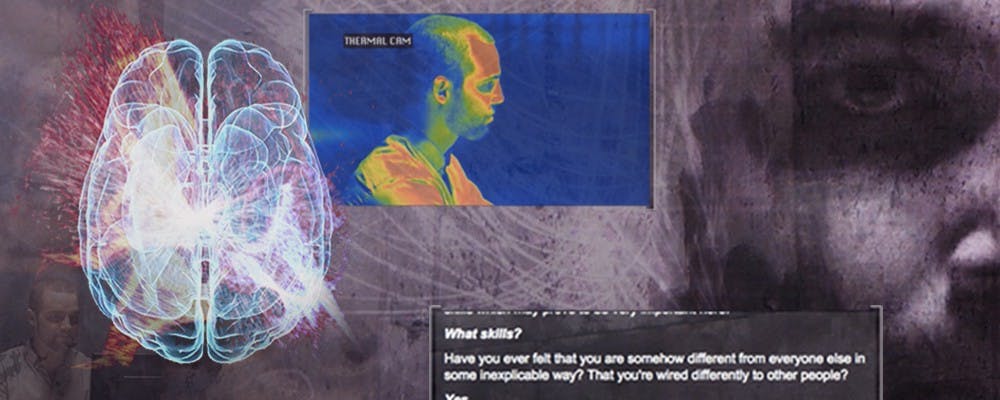Bandersnatch is the story of a Stefan Butler, a games developer whose actions get overtaken by technology and other forces. Part of the Black Mirror series, it is the first interactive drama that Netflix has produced, and the first time the series creators have created an interactive project. With such a high profile partnership, it is worth delving in to what this project means for TV broadcasters, the games industry and interactive narratives.
In 2012, I was in Cannes for a television conference, and covering one of the hotel frontages was a dominant poster for a new series called Lillyhammer from the then-emerging company Netflix. The show was the first time that Netflix had invested in original content and it was seen by many as an experiment. At the time, the show’s lead, writer and producer Steve Van Zandt said in a Rolling Stone interview: “Netflix completely shook up the world. They’ve been willing to invest and it’s opening a whole new golden era of television that I predicted back with The Sopranos. This is just the beginning.” Steve was right. Off the back of the success of Lillyhammer, Netflix launched House of Cards and the game for the future of entertainment had begun in earnest.
So, seven years on, comes the next dramatic experiment with Bandersnatch. Can Netflix now shake up the world again — not just in the world of content investment and distribution — but in the way that stories themselves are written?
This is the Bandersnatch experiment.

As a story structure, Bandersnatch is a straight choose-your-own-adventure experience. So much so, that the video game being developed in the episode is based on a choose-your-own-adventure book, and just after the show launched the owners of the Choose Your Own Adventure trademark sued Netflix for $25m. The structure of the show’s interactivity is similar to those books from the 1980s, where the reader can choose options that dictate what happens next.
Bandersnatch was a great PR success, so much so that this single episode of the series has become shorthand for interactive storytelling. From my own experience, it has proven a very useful reference where I previously had to spend the beginning of every meeting explaining how interactive stories have developed, I can now just say: “Bandersnatch” and we are all on common ground. If awareness was its objective, Netflix has knocked it out of the park.
From a user perspective, the feedback has been more interesting. Everyone I have talked to has mentioned a sense of frustration that they could not direct the story in the way they wanted. The promise was that they had control, but the reality is that the narrative choices are limited.
A few years back, I went on a similar journey, and so as a start-up we went back to the core of the story structure to see if we could rebuild it in a way that was more suited to the medium of the internet.
We started by making the made the assumption that a story is made up of Characters, Narrative, and Storyworld. Narrative is difficult to maintain if the user is continually interrupting with their own voice. Storyworlds are great to explore, but expensive to create. Which leaves Characters. As the internet is a communication medium, and our story message exists on the internet, then in the spirit of Marshall McLuhan, we should build a system enabling our message to match the medium. Thus was born Charisma.ai.

Our view remains that we do not want to give our players functional control of the story, we want them to be in the story. Rather than choosing a narrative, we put our players in front of the characters in the story, and what they say evolves the characters, and this then influences the story. For us, a story is about the emotional journey of the characters, and the player’s involvement in that journey.
To achieve this, Charisma combines the worlds of storytelling and gameplay, bringing emotional evolution of characters, dynamic memories of the characters to create a new form of conversational entertainment which has been enabled by advances in AI and natural language technologies. Technology has caught up with the ideas for these new forms of stories that allow viewers to properly step through the screen, meet the characters in the stories, and give them the genuine feeling that they are in the story.
There is no right or wrong in the more narrative-driven approach that Netflix takes, nor in the more character-driven approach that we take with Charisma, but our view naturally is that the successful next step in the entertainment world will be to go down the core of a story’s structure, and then rebuild in the medium that allows for the best possible immersion, allowing the next generation to seamlessly move from being passive viewers to engaged players of the story.